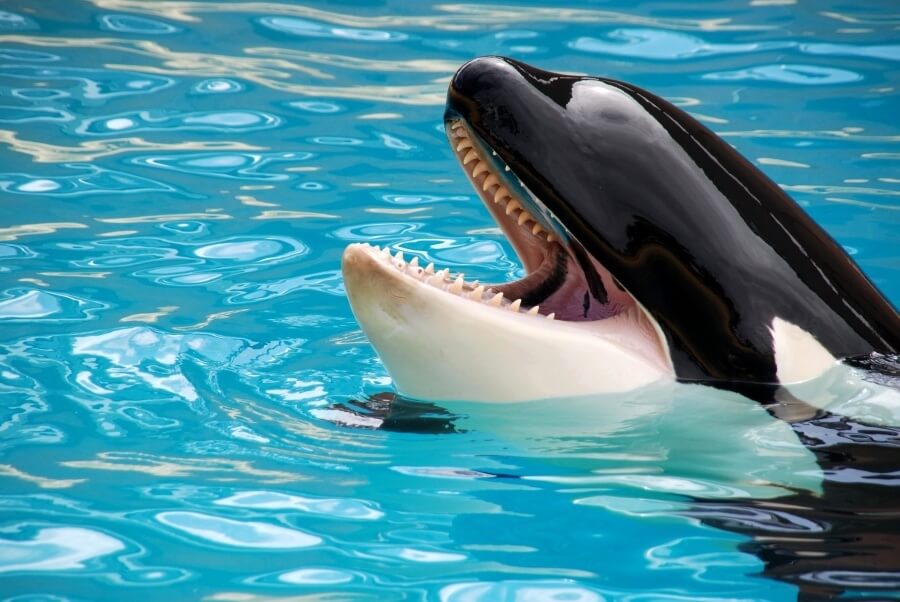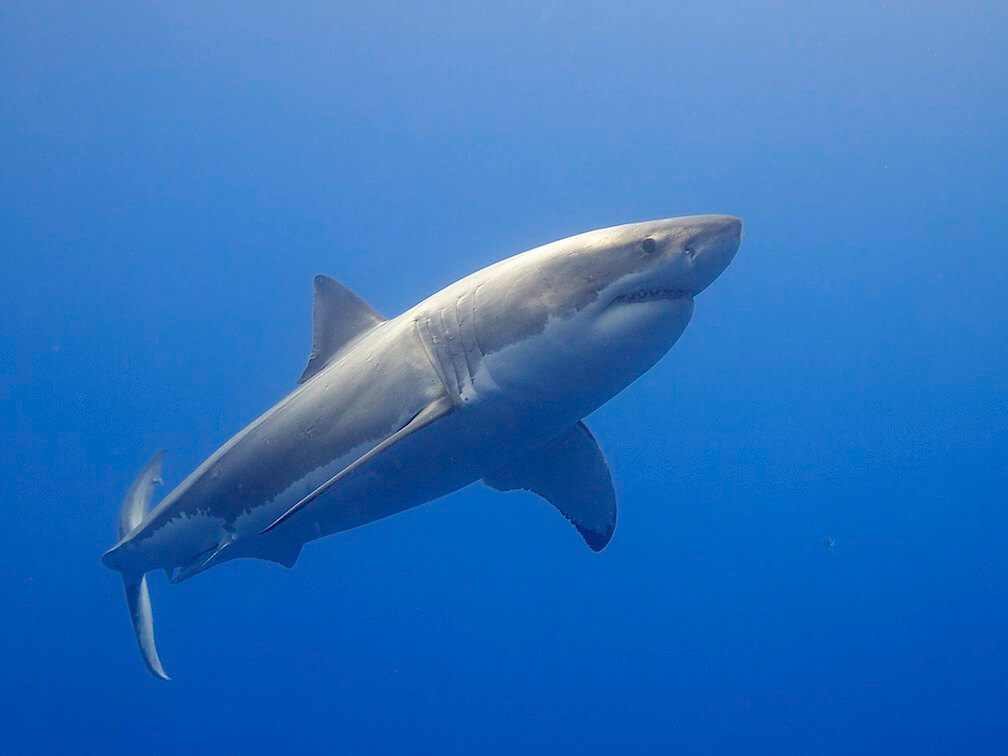Imagine for a moment that the formidable shark in Jawswere to meet face to face with the friendly orca from Free Willy. What would happen? A new study conducted by researchers at the Monterey Aquarium in California reveals that great whites are fearful of Willy and friends! This discovery confirms that the ultimate predator of the oceans, the one that reigns at the top of the food chain, is not the shark, but the killer whale!
Leaving before they’ve eaten their fill
Together with their team, Salvador Jorgensen and Scot Andersen from the Monterey Aquarium have been studying great white sharks on the US west coast for more than fifteen years. In order to study them more closely, they fit them with a satellite tag to track their movements. In 2009, researchers observe great whites roaming the waters of one of their favourite feeding grounds near the Farallon Islands, off the coast of San Francisco. However, their elephant seal hunt is abruptly interrupted by the arrival of two groups of killer whales. In a few hours, all the sharks have fled.
Between 2006 and 2013, similar encounters between sharks and killer whales occur three other times in the Farallon Islands with the same results. “When confronted by orcas, white sharks will immediately vacate their preferred hunting ground and will not return for up to a year, even though the orcas are only passing through,” notes Salvador Jorgensen in a press release.
But why do the sharks leave the Farallon Islands? Using electronic tags and field observations, researchers have dismissed the theory of competition for hunting elephant seals. Actually, the speed at which sharks are seen fleeing suggests that they are afraid!
Predator becomes prey
Cases of killer whales preying on sharks have been documented worldwide, including on the west coast of the United States. Killer whales are believed to be fond of great white shark livers, a delicacy rich in lipids. Even if they lack limbs, they manage to adroitly extract this organ – which represents a quarter of the shark’s body weight – while leaving the remainder of the carcass intact.
In sum, despite their rows of razor-sharp teeth and their imposing 5.5 m length, great white sharks are threatened by killer whales. As soon as they sense the presence of their predator, they make themselves scarce. This quick reaction is called the risk effect. In this case, the fear of being attacked by killer whales is enough to force them to halt their activities and move to hunting grounds that are of lesser interest but that they consider safer.
Meanwhile... elephant seals
If sharks risk getting into a fix with the arrival of killer whales, the latter’s presence spells good news for elephant seals! “On average we document around 40 elephant seal predation events by white sharks at Southeast Farallon Island each season,” remarks Monterey Aquarium biologist Scot Anderson. “After orcas show up, we don’t see a single shark and there are no more kills.”
Sometimes, one animal’s pain is another’s gain! We’re not so sure that the elephant seals’ prey are too happy though…
Learn more
Research: (2019) Jorgensen S.J., S. Anderson, F. Ferretti, J.R. Tietz, T.Chapple, P. Kanive, R. W. Bradley, J.H. Moxley and B.A. Block. Killer whales redistribute white shark foraging pressure on seals. Scientific Reports, 9: 6153
How do killer whales around the world hunt?(Whales Online, 2015)
Are killer whales a threat to the marine mammal populations that they feed on?(Whales Online, 2016)






